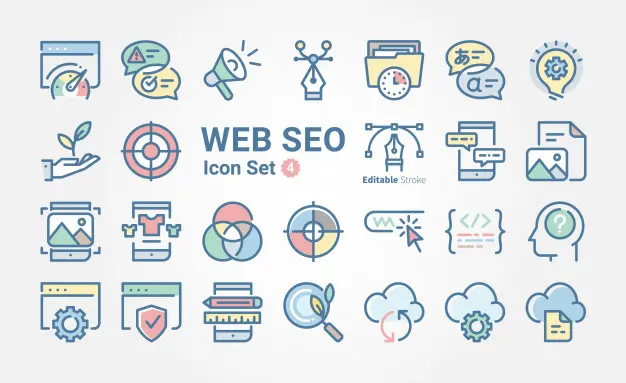Both content and links are important factors for SEO, and neither one “wins” over the other. They are actually interrelated and work together to help improve the search engine rankings of a website.
Content is important because it provides value to users and gives search engines something to index and rank. High-quality, relevant, and useful content can help a website rank higher in search engine results pages (SERPs) for relevant queries.
On the other hand, links are important because they signal to search engines that other websites trust and value the content on your website. High-quality, relevant, and authoritative backlinks from other websites can help improve a website’s authority and visibility in SERPs.
In essence, content and links complement each other in the SEO process. Good content can attract natural links from other websites, and good links can help search engines discover and rank high-quality content.
Therefore, to achieve SEO success, it’s important to have a balanced approach that includes both creating high-quality content and building high-quality links.
Importance of content in SEO
Content is one of the most important factors for SEO (Search Engine Optimization). Search engines like Google place a high value on websites that provide high-quality, relevant, and useful content to their users.
Here are some reasons why content is important for SEO:
- Provides value to users: Good content provides value to users and helps them solve their problems or answer their questions. When users find value in your content, they are more likely to stay on your website and engage with it, which can help improve your search engine rankings.
- Helps search engines understand your website: Search engines use content to understand what your website is about and how it relates to the queries users are searching for. By providing high-quality content that is relevant to your target audience and optimized for search engines, you can improve your website’s visibility in search results.
- Increases website authority: High-quality content can attract backlinks from other websites, which can improve your website’s authority and visibility in search results. When other websites link to your content, it sends a signal to search engines that your website is trustworthy and provides value to users.
- Encourages social shares and engagement: Good content is more likely to be shared on social media and other online platforms, which can help increase your website’s visibility and attract more traffic to your site. Social signals like shares, likes, and comments can also signal to search engines that your website is relevant and authoritative.
In summary, content is a critical factor for SEO success. By creating high-quality, relevant, and useful content that is optimized for search engines, you can improve your website’s visibility, attract more traffic, and increase your website’s authority and trustworthiness.
Importance of links in SEO
Links are one of the most important factors for SEO (Search Engine Optimization). Search engines like Google use links to determine the authority, relevance, and popularity of a website.
Here are some reasons why links are important for SEO:
- Signals website authority: High-quality backlinks from other authoritative websites are a strong signal to search engines that your website is trustworthy and provides value to users.
- Increases website visibility: Backlinks can help improve your website’s visibility in search results by providing additional entry points for users to find your website. When other websites link to your website, it increases the chances that users will discover your content.
- Helps search engines understand your website: Links help search engines understand the relationship between different pages on your website and how they relate to other websites on the internet. This can help improve your website’s visibility in search results and make it easier for users to find the content they are looking for.
- Encourages social shares and engagement: Links can help increase social shares and engagement on your website, which can improve your website’s visibility and attract more traffic to your site. When users find value in your content, they are more likely to share it with others.
In summary, links are a critical factor for SEO success. By building high-quality, relevant, and authoritative backlinks to your website, you can improve your website’s authority, visibility, and trustworthiness.
SEO translation for even more visibility abroad
When it comes to SEO (Search Engine Optimization), translating your website into different languages can be an effective way to increase your visibility abroad and reach new audiences. Here are some tips for optimizing your translated content for SEO:
- Conduct keyword research: Before translating your content, it’s important to conduct keyword research to identify the search terms and phrases that your target audience is using in their native language. Use this research to optimize your translated content for those keywords and phrases.
- Use native speakers for translation: When translating your content, it’s important to use native speakers who are fluent in the target language. This will ensure that your content is accurate and culturally appropriate, and will improve the user experience for your foreign audience.
- Optimize meta tags: When translating your content, make sure to translate your meta tags, including the page title, description, and keywords. This will help search engines understand the content of your page and improve its visibility in search results.
- Build local links: Building local links from websites in the target language and country can help improve your website’s visibility and authority in those markets. This can be done through outreach and relationship building with local websites and influencers.
- Consider local search engines: While Google is the dominant search engine in many countries, there may be other local search engines that are popular in your target market. Make sure to optimize your website for those search engines as well.
In summary, translating your content can be an effective way to increase your visibility abroad, but it’s important to do it correctly. By conducting keyword research, using native speakers for translation, optimizing meta tags, building local links, and considering local search engines, you can improve the SEO of your translated content and reach new audiences abroad.

